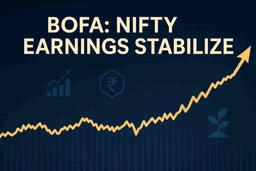SBFC Finance MD & CEO Aseem Dhru has warned that escalating consumer debt in India is akin to 'modern day slavery,' pushing many into long-term financial distress. He highlights how easy credit for depreciating assets, unlike wealth-generating investments, creates a cycle that benefits lenders while burdening individuals, citing alarming growth in Indian consumer credit and record global non-mortgage loan levels.
Aseem Dhru, the Managing Director and CEO of SBFC Finance, has voiced strong concerns regarding the pervasive issue of consumer debt in India, drawing a stark parallel to 'modern day slavery.' He argues that readily accessible credit traps individuals in a perpetual cycle of financial hardship, where years are spent repaying not just the principal loan amount but also significant interest.
Dhru identifies two primary 'masters' responsible for wealth extraction: taxes and consumer credit. He enumerates various taxes, including income tax, GST, stamp duty, capital gains tax, STT, municipal taxes, road tax, and fuel levies, as the first layer of systemic financial burden. The second, and often more insidious, 'master' is consumer credit.
He draws a critical distinction between borrowing habits: while the wealthy leverage loans to generate more wealth, a significant portion of the population often borrows to acquire depreciating assets like cars, mobile phones, or even homes. This pattern creates a profitable ecosystem for lenders at the expense of borrowers' long-term financial well-being.
To illustrate the detrimental impact of long-term debt, Dhru references a proposed 50-year mortgage in the United States. He points out that such a loan, while offering only a marginal reduction in Equated Monthly Installments (EMIs), would nearly double the total interest paid over the loan's lifetime, exposing the hidden costs of extended credit.
Dhru quotes actor Kevin Spacey's adage, "If you don’t have enough money to buy in cash, you can’t afford it." He cautions that the mere ability to manage EMIs does not equate to true affordability, as individuals may struggle with the overall financial commitment over time.
Alarming statistics underscore his concerns: Indian consumer credit has surged from ₹38 lakh crore in FY21 to ₹67 lakh crore in FY24. While personal disposable income has grown at a Compound Annual Growth Rate (CAGR) of 10%, consumption has outpaced this at 10.6% CAGR. Consequently, net financial savings have declined from 10% to 7% of disposable income. Most concerningly, non-mortgage loans now constitute 32% of India's Gross Domestic Product (GDP), a figure Dhru notes is the highest globally.
While Dhru acknowledges that home loans can be an exception due to the appreciating nature of real estate, and business borrowing can be accretive, he advocates for a serious re-evaluation of most other consumption loans. He warns that individuals who live beyond their means often face dire consequences, including immense family stress due to missed EMIs and the humiliation associated with debt collectors.
Dhru concludes his commentary with a poignant analogy: "Debt, he says, 'is like salt. A little enhances the flavour, a lot makes the food inedible.'"
Impact:
This news is highly relevant for Indian investors and consumers, potentially influencing sentiment towards consumption-linked stocks and the financial services sector. It highlights significant macroeconomic risks associated with rising household debt levels and could prompt a reassessment of lending practices and consumer financial behavior. Rating: 7/10.
Difficult Terms:
Consumer Debt: Money owed by individuals for personal consumption, such as credit card balances, personal loans, and vehicle financing.
Modern Day Slavery: A metaphorical term describing a state of being trapped and controlled, often by severe financial obligations or exploitative working conditions, from which escape is extremely difficult.
Financial Distress: A severe financial state where an individual or entity struggles significantly to meet its payment obligations.
Depreciating Items: Assets that lose value over time, such as vehicles and electronics.
Accretive: Describes an action or investment that increases the value or financial strength of a company or individual.
CAGR (Compound Annual Growth Rate): A measure of the average annual growth rate of an investment or a metric over a specified period longer than one year.
EMI (Equated Monthly Installment): A fixed payment amount made by a borrower to a lender at a specified date each calendar month.
GDP (Gross Domestic Product): The total monetary value of all finished goods and services produced within a country's borders during a specific period.
STT (Securities Transaction Tax): A tax levied on the value of securities traded on a stock exchange in India.



